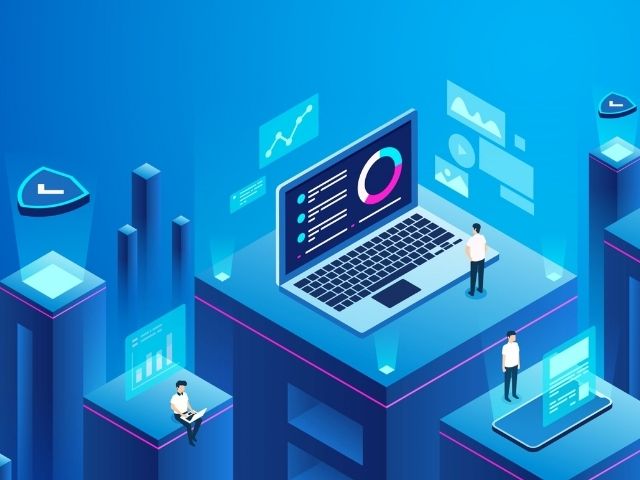
Introduction:
Artificial Intelligence (AI) is not just a buzzword; it’s a transformative force reshaping industries globally. In the industrial sector, AI applications are ushering in a new era of efficiency, productivity, and innovation. In this blog post, we’ll explore how AI is revolutionizing various industrial domains, from manufacturing and logistics to energy and beyond.
Predictive Maintenance in Manufacturing:
One of the game-changers in manufacturing is predictive maintenance powered by AI. By analyzing historical data and real-time sensor information, AI algorithms can predict when equipment is likely to fail, allowing for proactive maintenance. This minimizes downtime, reduces maintenance costs, and extends the lifespan of machinery.
Quality Control and Defect Detection:
AI is enhancing quality control processes by automating defect detection. Computer vision systems powered by AI can inspect products on the production line, identifying defects with precision and speed beyond human capabilities. This ensures higher product quality and reduces the likelihood of defective items reaching the market.
Supply Chain Optimization:
The complexities of modern supply chains are being streamlined with AI. From demand forecasting and inventory management to route optimization and supplier selection, AI algorithms are optimizing every step of the supply chain. This leads to cost savings, improved efficiency, and better responsiveness to market changes.
Robotics and Automation:
AI-driven robotics are revolutionizing the manufacturing floor. Industrial robots equipped with AI can perform complex tasks with precision, adapt to changing conditions, and collaborate with human workers safely. This not only increases efficiency but also opens up new possibilities for flexible manufacturing processes.
Energy Management and Sustainability:
AI is playing a crucial role in energy management and sustainability efforts. Smart grids, powered by AI algorithms, can optimize energy distribution and consumption, leading to significant energy savings. AI is also used to monitor and control environmental impact, contributing to more sustainable industrial practices.
Process Optimization in Chemical and Pharmaceutical Industries:
In chemical and pharmaceutical manufacturing, AI is applied to optimize complex processes. AI algorithms can analyze vast datasets to identify the most efficient production parameters, ensuring consistent product quality and reducing waste. This is particularly crucial in industries with stringent quality standards.
Health and Safety Monitoring:
AI is enhancing health and safety in industrial settings through advanced monitoring systems. Computer vision and sensor-based AI can detect unsafe conditions, monitor worker activities, and provide real-time alerts to prevent accidents. This proactive approach to safety is improving workplace conditions across various industries.
Customization in Automotive Manufacturing:
AI is enabling mass customization in automotive manufacturing. By analyzing customer preferences and market trends, AI algorithms assist in designing and producing customized vehicles. This not only meets the demands of individual consumers but also enhances the overall competitiveness of automotive manufacturers.
Conclusion:
The applications of AI in the industrial sector are diverse and far-reaching, promising increased efficiency, cost savings, and innovation. As industries continue to embrace AI technologies, we can expect further advancements that will redefine how we produce, manage resources, and drive sustainability in the years to come. The industrial landscape is evolving, and AI is at the forefront of this transformative journey.